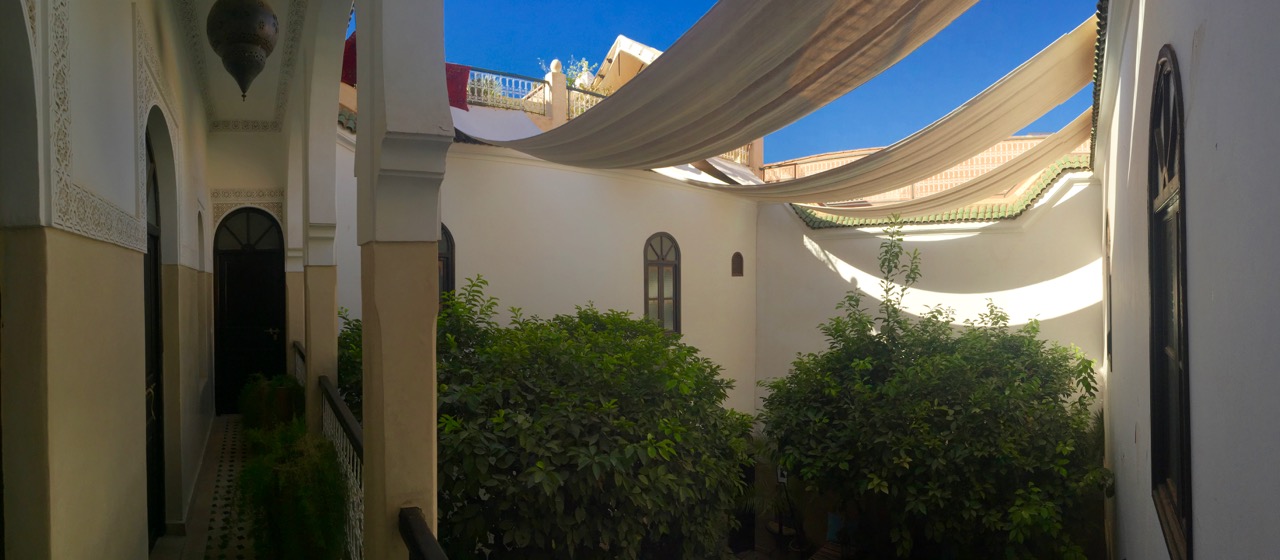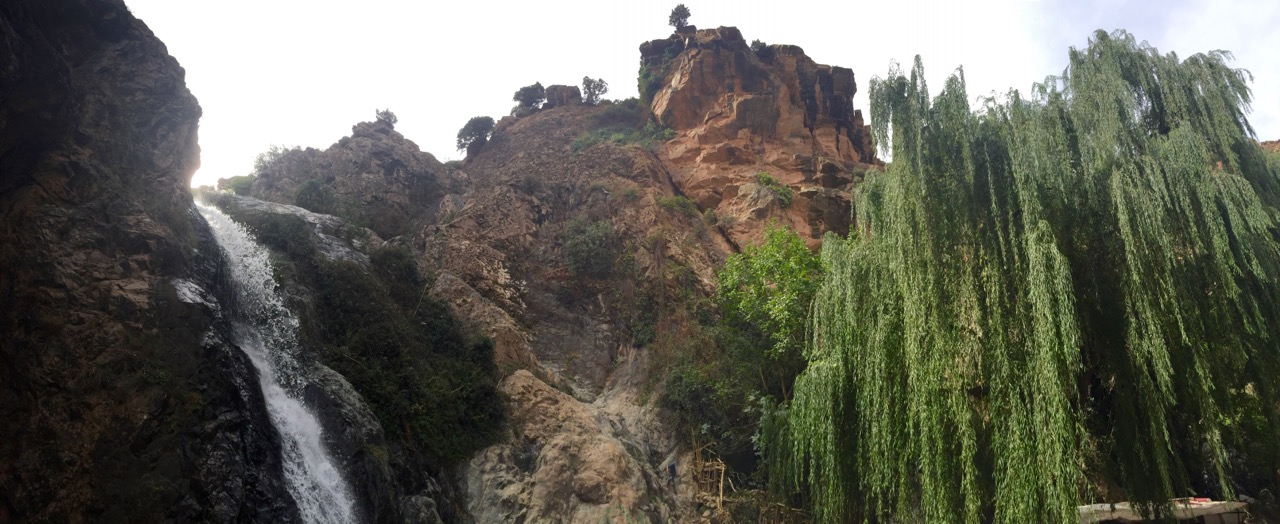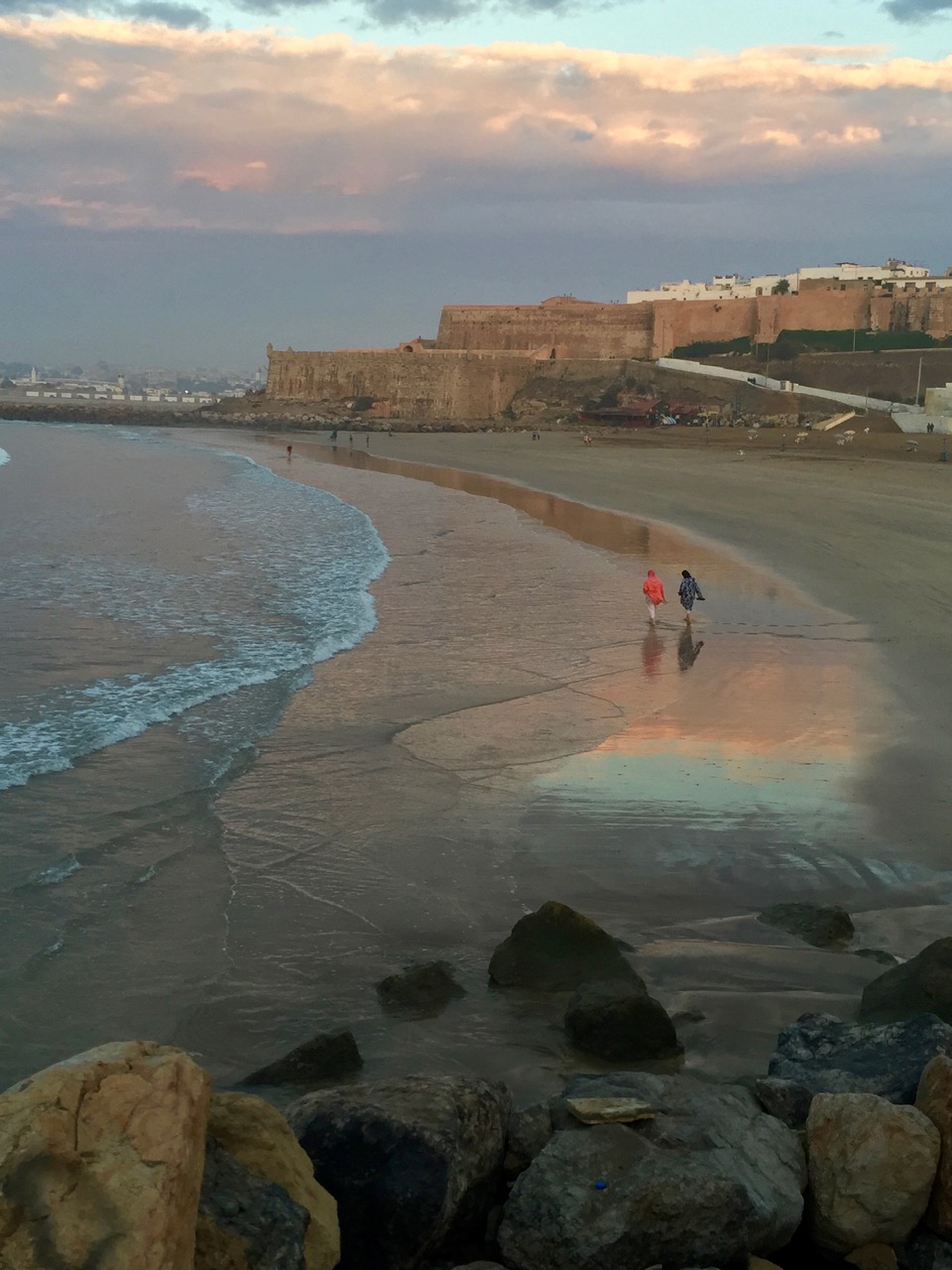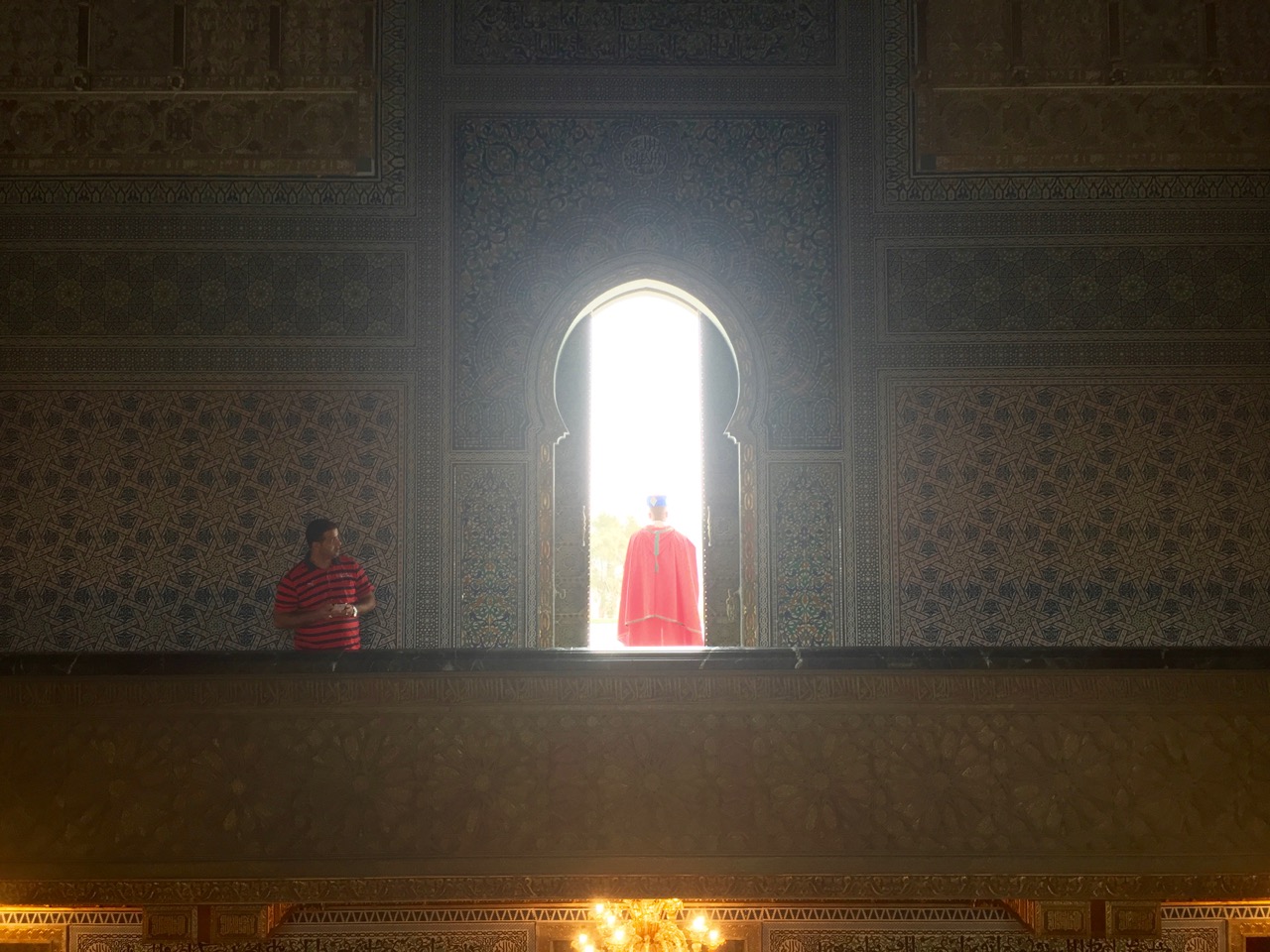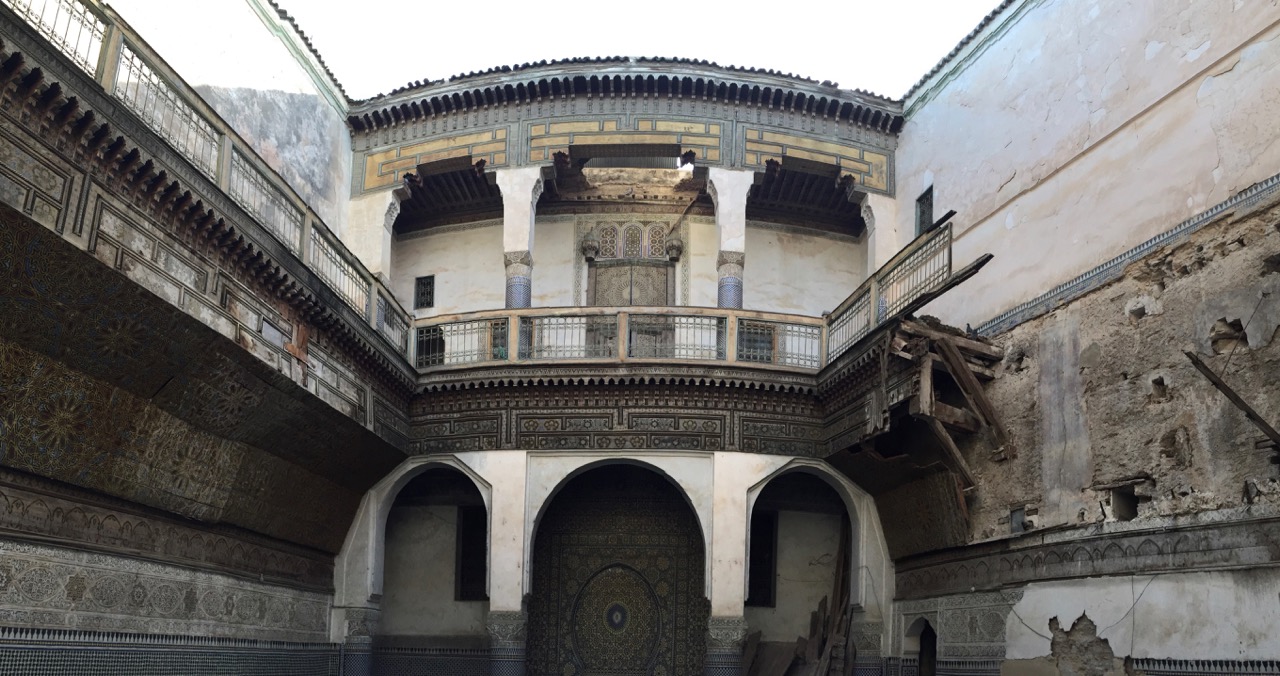Two gweilos in Morocco
30 Oct 2016 | Reading time: 6 minMarrakech
2 nights at Riad Aguerzame; 1 night at Riad Miski.
Our arrival was bad. Ripped off by rude taxi drivers, taken the long way round the city, and then taken to the wrong place down terrifying streets (think pitch black corners and ceilings you need to crouch to get under). We eventually found our riad. “Oh, we’ve been trying to call to see if the driver found you,” said our host. We forgot we were being picked up.
Marrakshis have two sides: the kind you meet out and about, and the kind inside. Inside, in shops and cafes and riads, people are charming and friendly. But outside, on the streets of the medina, people will lie through their teeth to get money out of you. “Big square is this way.” (It wasn’t.) “That way is closed.” (It isn’t.) “Fuck you” when you don’t reply, hoping to get a rise out of you – then they know you speak English and can palm you off on one of their friends. It’s not a friendly place. Plan your route before you leave your riad – which will become an quiet oasis in the médina.
There are some beautiful, historic sites in the médina, like the Ben Youssef madrasa.
The souks were of little interest. Everyone sells the same glazed tagines, tea sets and leather goods. Seeing first-hand the cruelty involved in their sale – emaciated donkeys, whipped and laden with boxes in the scorching heat – was awful.
Marrakech has a quieter side that shows its face on Sunday. Less harassment from street touts, fewer people in the streets. It made being out pleasant again.
Everyone talks about the Majorelle gardens: famed for their electric-blue paintwork. The cactus garden was full of exotic species and was beautiful as well. The cafe was a nice place to drink café allongé and people-watch – lots of beautiful Spanish and French girls, tattooed and elegantly dressed despite the heat. Maybe more impressive was Le Jardin Secret, a riad which had been remade as two beautiful gardens, with a focus on maintaining much of the existing pre-industrial irrigation.
Go day-tripping to the Atlas Mountains. Wear your seatbelt if you don’t want the police to stop you and fine you. (Needless to say, this isn’t about safety – none of the taxis have working seatbelts.) We had traditional Moroccan lunch, cooked by a Berber family, in a valley 2000m above sea level.
Rabat
1 night at Riad Marhaba.
A quiet, cool seaside city. People talked to me on the street – this time out of curiosity. One man told me about his work running a naturalisation centre for migrants to Morocco, teaching them Arabic and inculcating them with the culture.
The drive was insane. In the city, drivers are mad, frantically overtaking and undertaking. The motorways were much better – paved to an impeccable standard and paid for with tolls – but the driving left a lot to be desired. A bus had broken down and was sat in a slip lane; a couple of guys were leaning against it (in the road!) smoking cigarettes. People picking up litter will dart across the carriageway without warning. And indicating was more of an art than a science.
We wandered to the beach in search of a jetski. A surf instructor pointed us to a place down the other end of the beach, seemingly without wanting to sell his own services. He offered us his business card in case we changed our minds. “Where are you from?” “From London. You?” “From Rabat. But wherever there is air to breathe, I am home.”
In the end, unable to find a jetski to hire in our budget, we went paddleboarding. After fucking up our approach into the water a few times and capsizing, a local pointed out that we were in the wrong part of the beach – that the waves were much smaller if we moved along a bit.
The riad owner is French; working for Alstom on power plants in Casablanca (previously he was in Algeria). He much prefers Rabat to other cities in Morocco. Thinks it’s underrated. He’s right. Rabat is more like a city in the south of France – calm, patisseries on every corner, and a beautiful seafront.
Fez
3 nights at Riad Andalib.
The owner of Riad Andalib is no-nonsense. He gave us the lowdown on how to enjoy Fez without a guide. For haggling on offers in the souk, push for a 70% price cut. For big items like carpets, push for 90%.
Use basic economic theory to your advantage. A taxi driver taking people from the médina to the new town can carry three passengers at 5Dh each; if you offer 15Dh they’ll take you. Maybe 20Dh if you don’t want them to wait around for other passengers. Insist on giving the correct money at the end of your ride. One driver insisted on getting 15Dh from each of us – when I noted, sharply, that j’ai dit quinze pour tous les deux, he was silent.
The new town offered some novelties. A huge Carrefour supermarket – big enough that you could buy a moped there. A Virgin Megastore. A frozen yogurt place (Hector pointed out we’ve now consumed froyo on three continents).
Probably the highlight of our trip was a tour round the once-great El Glaoui palace. The woman who showed us round knew it inside and out, and its history, and she lived there with her husband, himself a distant relative of some Moroccan nobleman.
The place was disintegrating. Ornate balustrades had collapsed to rubble; a lonely black cat picked at the grout between the mosaic tiles. It was haunting and amazing.
Retour
Marrakesh airport is dire. Getting airside takes an hour and ten minutes. Mobile boarding passes don’t work, so we have to pick up paper ones. Security takes twenty minutes or so, and the liquids policy is variably enforced. (Hector is forced to surrender his sunscreen, but I get away with mine.) There are blaring announcements every minute or so – bring noise-cancelling headphones.
Being home is strange, but nice. Comforting. Britain is a calmer place. Things work here. The sound of sirens is nice - in Morocco, you never hear sirens. And such a relief to be able to walk down the street unhassled…
